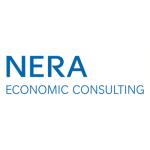Transfer pricing defense based on database-benchmarked transactional net margin method (TNMM) margins for group distributors in Germany has been a subject of controversy for some time.
Tax authorities regularly complain about the lack of comparability of selected independent distributors in general and the absence of German ones in particular. Still, they often have to give in as taxpayers, and advisers could refer to best practices from the OECD principles and the formal burden of proof on the side of tax authorities.
Authorities’ approach
In recent years, the strategy of German tax authorities has evolved and now relies on the following:
1. Field tax inspectors regularly make an assessment that local sales entities allegedly perform intangible development, enhancement, maintenance, protection, and exploitation (DEMPE) functions and do not qualify as routine distributors, largely based on retroactive application of the 2017 OECD guidelines.
2. In line with German administrative TP guidelines, TNMM is rejected as appropriate method and the submitted TP documentation is considered so ‘flawed’ that it allows tax authorities to make discretionary assessments.
3. In the closing horse-trading negotiations of tax audits, taxpayers are often effectively blackmailed to accept compromises involving some degree of double taxation or face the threat of maximum income adjustments to secure a better outcome for Germany in an mutual agreement process (MAP).
Such aggressive patterns are expected to increase in scope and number given the latest regulatory changes in Germany. The May 2021 inclusion of the OECD DEMPE concept to intangible-related functional returns in the German Foreign Tax Code provides the tax authorities with a clear-cut legal framework to proceed with the first two steps mentioned above.
Furthermore, the new TP administrative guidances introduced at the end of 2020 allow tax authorities to corroborate any best method in the documentation of taxpayers by an ‘alternative method’ of their choice and to use their discretion to impose income adjustments when the alternative method reveals a higher profit for the taxpayer that the tax authorities deem to be more likely.
Given the patterns observed for the past, it can be expected that in German inbound situations, a large percentage of TNMM benchmarking documentation will be challenged along the lines described above, and the success rate of German tax authorities in imposing TP–related income adjustments will significantly increase.
Evolving TP controversy
In view of these likely developments, the question for taxpayers is how to prepare for an expected wave of controversies. A do-nothing strategy—stick purely with the existing TNMM benchmarking based documentation, fight it in court if needed, but hope that the issue will be solved in MAPs or arbitration—is clearly suboptimal.
Following the establishment of the DEMPE concept, the field of dispute resolution will move from the question of “what are good comparability data?” to “how do we consider local marketing contributions?” Such future disputes to acknowledge the nature and quantum effect of local DEMPE contributions will be difficult to settle.
Dispute resolution will become more time-intensive and costly and may fail entirely as tax authorities fundamentally disagree in the basic assessment of the fact pattern, given divergent interest and the lack of experience in how to assess and quantitatively value DEMPE contributions.
Analytical approach
A superior approach would be to conduct a complementary economic analysis along the following lines:
1. Let’s assume for the sake of the argument that tax authorities may be right in claiming that a local distributor has made some relevant DEMPE contributions that might provide some reason to reject the TNMM.
2. In such a case, a profit split analysis may constitute a good alternative method to corroborate the results of the existing TNMM analysis. This approach is consistent with the German requirements of an hypothetical arm’s-length test when TNMM benchmarking does not provide reliable results.
3. In line with OECD recommendations, the profit split analysis would consider available outside options and relative bargaining power of the parties contributing intangible value. Analytical methods from cooperative game theory (e.g. the Shapley value concept, which is widely adopted in practical industrial economics) provide a sound analytical economic framework for how independent parties would agree on a fair allocation of entrepreneurial profits to which they jointly contribute
4. The profit share for the distributor can be compared with arm’s-length margins obtained from traditional TNMM-type benchmarking. If quantitatively consistent, the distribution return could still be evidenced to be arm’s length, even if the applicability of the TNMM were challenged.
We have successfully adopted this analytical procedure to defuse TNMM benchmarking-related tax controversies in Germany. In a large majority of cases, based on our practical experience, it should be possible to demonstrate that applied TNMM margins are materially consistent with a range of profit shares determined through a Shapley value-based profit split method.
This approach complements traditional statistical benchmarking by considering the unique facts and circumstances of the inter-company transactions under review. Its economic logic is aligned with 2017 OECD TP guidelines and the rationale in German administrative guidelines for local tax authorities to apply an ‘alternative method’ when concerns arise regarding the suitability of the TNMM as a best method in TP documentation.
Backing up the existing traditional documentation with a customised alternative approach is an excellent proactive strategy to defend the taxpayers’ TP in tax audits in Germany. Moreover, in case tax controversies still arise, this complementary analysis provides greater chances for taxpayers to prevail with their original results in international dispute resolution compromises, since the position of the taxpayer is consistently defended from different angles.
The proposed approach can be applied to group distributors in other critical market countries. Once the modeling framework is established for one major country, like Germany, adapting the economic analysis to market conditions in other countries is rather straightforward and does usually not require significant efforts.
Yves Hervé
Managing director, NERA Economic Consulting
T: +49 69 710 447 508
Philip de Homont
Partner, NERA Economic Consulting
T: +49 69 710 447 502













